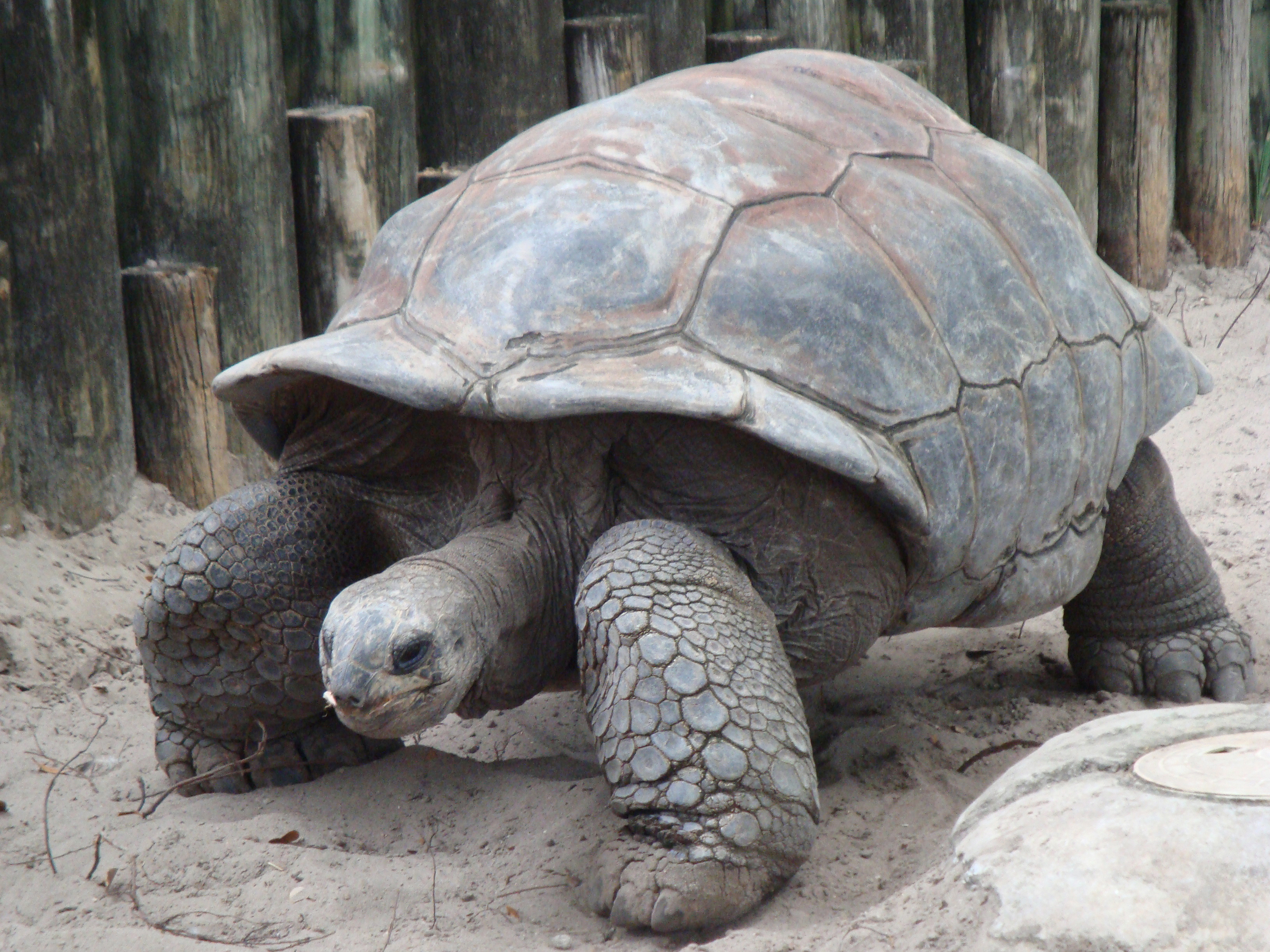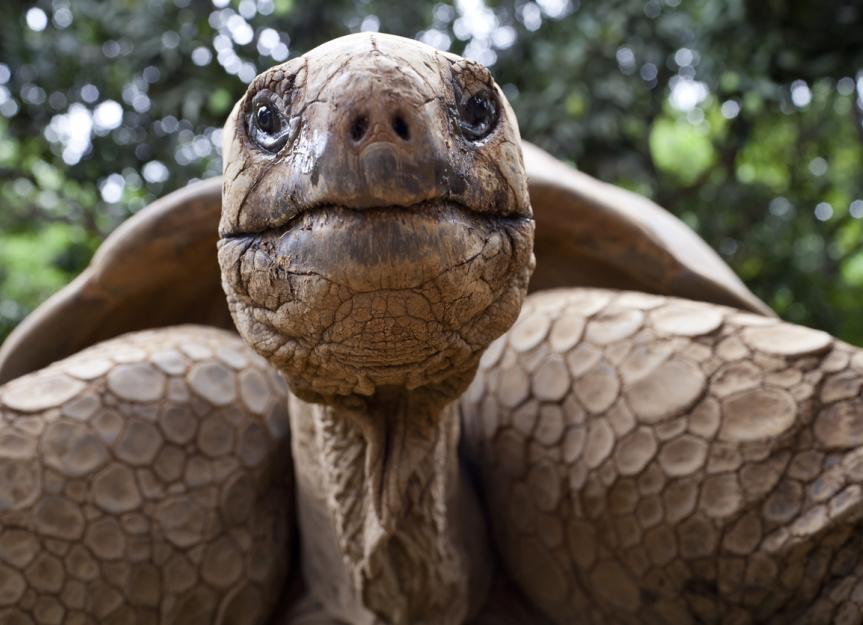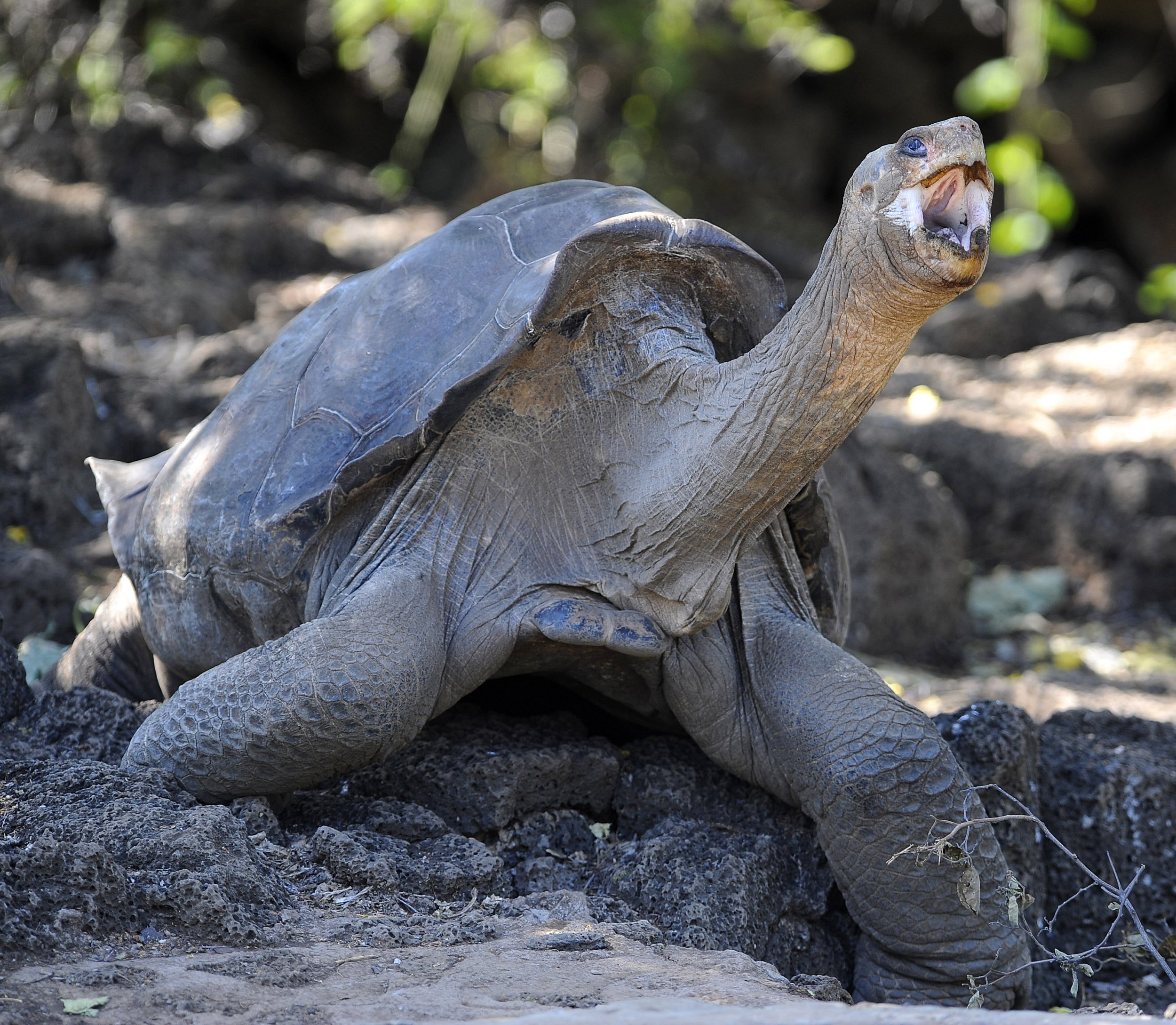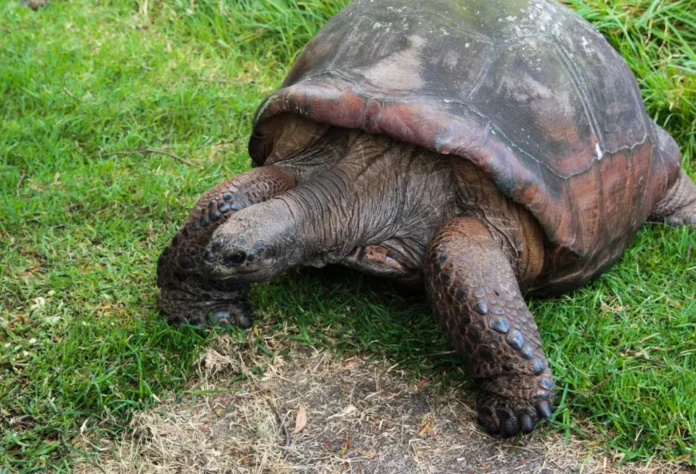Tortoises typically live for 80-150 years. Factors like species and care can influence lifespan.
Tortoises are fascinating creatures known for their longevity in the animal kingdom. These slow-moving reptiles can live for several decades, with some species even reaching up to a century or more. Their extended lifespan often makes them popular pets for individuals seeking a long-term companion.
Understanding the factors that contribute to a tortoise’s longevity is essential for providing proper care and ensuring a happy and healthy life for these unique animals. Let’s delve deeper into the intriguing world of tortoises and explore what influences their remarkable lifespan.

Credit: zh.wikipedia.org
The Tortoise Lifespan Mystery
The Tortoise Lifespan Mystery has puzzled scientists and animal enthusiasts for years. These creatures have the ability to live for an incredibly long time, with some tortoises outliving humans. But what is it about these reptiles that allows them to live such long lives? Let’s dive deeper into the mystery of the tortoise lifespan.
Species Variance
Tortoises come in a variety of species, and each species has its own unique lifespan. Some species, like the Galapagos tortoise, have been known to live for over 100 years. Other species, like the Russian tortoise, have a shorter lifespan of around 40 years. The differences in lifespan can be attributed to a variety of factors, including diet, habitat, and genetics.
Record Holders
When it comes to tortoise lifespans, there are a few record holders that have captured the world’s attention. The oldest known tortoise was a Seychelles giant tortoise named Jonathan, who lived to be 187 years old. Another famous tortoise, Tu’i Malila, was given to the royal family of Tonga in 1777 and lived to be 188 years old. These record-holding tortoises have captivated people around the world and have contributed to the mystery of the tortoise lifespan.
So, what is it that allows tortoises to live such long lives? One theory is that their slow metabolism and low body temperature contribute to their longevity. Additionally, tortoises are known for their hardy nature and ability to survive in harsh environments. Whatever the reason, the tortoise lifespan remains a fascinating mystery that continues to intrigue scientists and animal lovers alike.
Biology Behind Longevity
How Long Do Tortoises Live? Tortoises are known for their exceptional longevity, with some species living over 150 years. The secret lies in their slow metabolism and ability to adapt to various environments, allowing them to thrive for decades in the wild or as pets.
Tortoises are known for their long lifespan, and they can live for several decades. The biology behind their longevity is a fascinating subject, and there are several factors that contribute to their extended lifespan. This post will focus on the metabolic rate and genetic factors that play a crucial role in determining how long tortoises live.
Metabolic Rate
The metabolic rate of tortoises is one of the key reasons for their long lifespan. These animals have a very slow metabolic rate, which means that they burn calories at a much slower rate than other animals. A slower metabolic rate results in a slower aging process, which is why tortoises can live for so long. In fact, some species of tortoises can live for over 100 years, which is remarkable.
Genetic Factors
Another important factor that contributes to the longevity of tortoises is genetic factors. Tortoises have evolved to have specific genes that help them live longer. These genes are responsible for repairing DNA damage, fighting off diseases and infections, and maintaining healthy cells. Tortoises also have a unique ability to regenerate their organs, which is something that not many other animals can do. This ability to regenerate organs is also linked to their genetic makeup.
In conclusion, the biology behind the longevity of tortoises is a fascinating subject, and it’s clear that there are several factors that contribute to their extended lifespan. Their slow metabolic rate and specific genes play a crucial role in determining how long they live. Understanding these factors can help us appreciate these amazing animals even more.
Comparing Lifespans In The Wild Vs. Captivity
Tortoises are fascinating creatures known for their long lifespans. However, the lifespan of a tortoise can vary depending on whether it lives in the wild or in captivity. In this article, we will explore the differences in lifespans between tortoises in the wild and those kept in captivity.
Impact Of Predation
In the wild, tortoises face numerous threats from predators, which can significantly impact their lifespan. Predators such as foxes, dogs, and birds of prey pose a constant danger to tortoises, especially when they are young and vulnerable. The risk of predation can lead to a shorter lifespan for wild tortoises compared to their counterparts in captivity.
Quality Of Care
The quality of care provided to tortoises in captivity plays a crucial role in determining their lifespan. When kept in captivity, tortoises are protected from natural predators and have access to a controlled environment with a consistent food supply. This ensures that they receive proper nutrition and are not exposed to the risks of the wild.
Furthermore, captive tortoises often receive regular veterinary care and attention, which can help detect and treat any health issues early on. This level of care can significantly extend their lifespan compared to tortoises in the wild, where diseases and injuries may go untreated.
In summary, while tortoises in the wild face the constant threat of predation, those kept in captivity benefit from the provision of quality care and protection. As a result, captive tortoises tend to live longer and healthier lives than their counterparts in the wild.
Historical Insights Into Tortoise Age
Understanding the lifespan of tortoises is not only a fascinating topic but also offers valuable insights into the history of these remarkable creatures. Through ancient records and modern tracking techniques, scientists have been able to gain a deeper understanding of how long tortoises can live.
Ancient Records
Ancient civilizations have left behind records that provide us with glimpses into the lifespan of tortoises. The Egyptians, for example, revered these animals and believed they symbolized longevity and wisdom. Some ancient Egyptian texts mention tortoises living for over a hundred years, which is a testament to their impressive longevity.
Similarly, Chinese historical texts also mention tortoises as symbols of longevity and good fortune. In these records, it is documented that some tortoises were said to have lived for several centuries.
Modern Tracking Techniques
In more recent times, scientists have relied on modern tracking techniques to gather data on tortoise lifespan. By studying different tortoise species in their natural habitats and using various methods such as marking and recapturing, researchers have been able to estimate their longevity more accurately.
For instance, the Galapagos tortoise, known for its exceptional lifespan, has been the subject of extensive scientific study. By analyzing the growth rings on their shells and using advanced DNA analysis, scientists have determined that some of these tortoises can live well over a hundred years.
Other tortoise species, such as the Aldabra giant tortoise, have also been studied using similar techniques. These studies have revealed that some individuals of this species have surpassed the age of 200, making them one of the longest-living creatures on Earth.
Through the combination of ancient records and modern tracking techniques, we have gained valuable insights into the age and longevity of tortoises. These remarkable creatures continue to captivate us with their ability to survive for many decades, serving as a testament to the wonders of the animal kingdom.
The Role Of Diet In Tortoise Longevity
Nutritional Needs
Tortoises have specific nutritional needs to support their longevity. They require a diet rich in fiber, calcium, and vitamins such as A and D3. Including a variety of leafy greens, hay, and vegetables in their diet is essential to meet these requirements.
Common Dietary Mistakes
One common mistake is feeding tortoises a diet high in protein. This can lead to shell deformities and other health issues. Additionally, improper calcium to phosphorus ratios in their diet can result in metabolic bone disease. It’s crucial to avoid feeding them high-fat and high-sugar foods as well.

Credit: www.petmd.com
Habitat Influence On Tortoise Lifespan
Tortoises are fascinating creatures known for their longevity. The environment in which a tortoise lives plays a critical role in determining its lifespan. Understanding the impact of habitat on tortoise longevity can provide valuable insights for tortoise owners and conservation efforts.
Ideal Conditions
Tortoises thrive in specific environmental conditions that contribute to their long lifespan. These creatures require a habitat with ample space for movement, natural sunlight, and a varied diet. The ideal temperature for a tortoise habitat ranges between 75-85°F, with a basking area that can reach up to 95°F. A balanced diet that includes leafy greens, vegetables, and occasional fruits is crucial for their well-being and longevity.
Threats To Habitat
Tortoises face various threats to their natural habitat, which can significantly impact their lifespan. Habitat destruction due to urbanization, agriculture, and deforestation poses a severe risk to tortoises. Pollution, climate change, and illegal wildlife trade further contribute to the degradation of their environment. These threats can lead to habitat fragmentation and loss, disrupting the natural balance that tortoises require for their survival.
Reproduction And Its Impact On Lifespan
Tortoises have an impressive lifespan, with some species living over 100 years. Reproduction plays a significant role in determining the longevity of tortoises, as healthy mating and egg-laying processes are crucial for their survival. By ensuring successful reproduction, tortoises can thrive and live a long, fulfilling life.
Breeding cycles and energy allocation play a crucial role in determining the lifespan of tortoises.
Breeding Cycles
Tortoises have specific breeding seasons based on their species and habitat.
Energy Allocation
During breeding seasons, tortoises allocate more energy towards reproduction. This can affect their overall health and longevity. In summary, reproduction significantly influences the lifespan of tortoises.
Conservation Efforts And Future Of Tortoise Lifespans
Tortoises have impressive lifespans, with some species living over 100 years in the wild. Conservation efforts are crucial for ensuring the future of tortoise populations. By protecting their natural habitats and addressing threats such as habitat destruction and illegal trade, we can contribute to the longevity of these fascinating creatures.
Tortoises are remarkable creatures that can live for over 100 years. Conservation efforts are crucial in ensuring their longevity.
Protective Legislation
Protective legislation plays a vital role in safeguarding tortoise populations from threats. By enacting laws, governments can regulate activities like poaching and habitat destruction.
Captive Breeding Programs
Captive breeding programs are essential for increasing tortoise populations. These programs help maintain genetic diversity and provide a safety net for endangered species.

Credit: www.newsweek.com
Frequently Asked Questions
How Long Do Tortoises Live?
Tortoises can live for a remarkably long time, with some species reaching ages of over 100 years. The lifespan of a tortoise can vary depending on factors such as species, habitat, and care. Proper nutrition, habitat, and veterinary care can contribute to a longer life for these fascinating creatures.
What Factors Influence A Tortoise’s Lifespan?
Several factors can impact a tortoise’s lifespan, including diet, habitat, predator threat, and overall health. Providing a balanced diet, a suitable living environment, protection from predators, and regular veterinary check-ups can all contribute to ensuring a tortoise lives a long and healthy life.
How Can I Help My Tortoise Live Longer?
To help your tortoise live a long and healthy life, ensure they have a suitable habitat, receive proper nutrition, and have access to veterinary care. Regularly monitor their environment, protect them from potential threats, and provide opportunities for exercise to promote their overall well-being.
Conclusion
Understanding the lifespan of tortoises can help us provide the necessary care and ensure their well-being. With some species living for over a century, it’s important to consider the commitment involved in owning a tortoise as a pet. By providing a suitable habitat, proper nutrition, and regular veterinary check-ups, we can help these amazing creatures thrive and enjoy a long, healthy life.
So, whether you’re considering getting a tortoise or simply curious about their longevity, it’s fascinating to learn about these remarkable creatures and the factors that contribute to their longevity.


